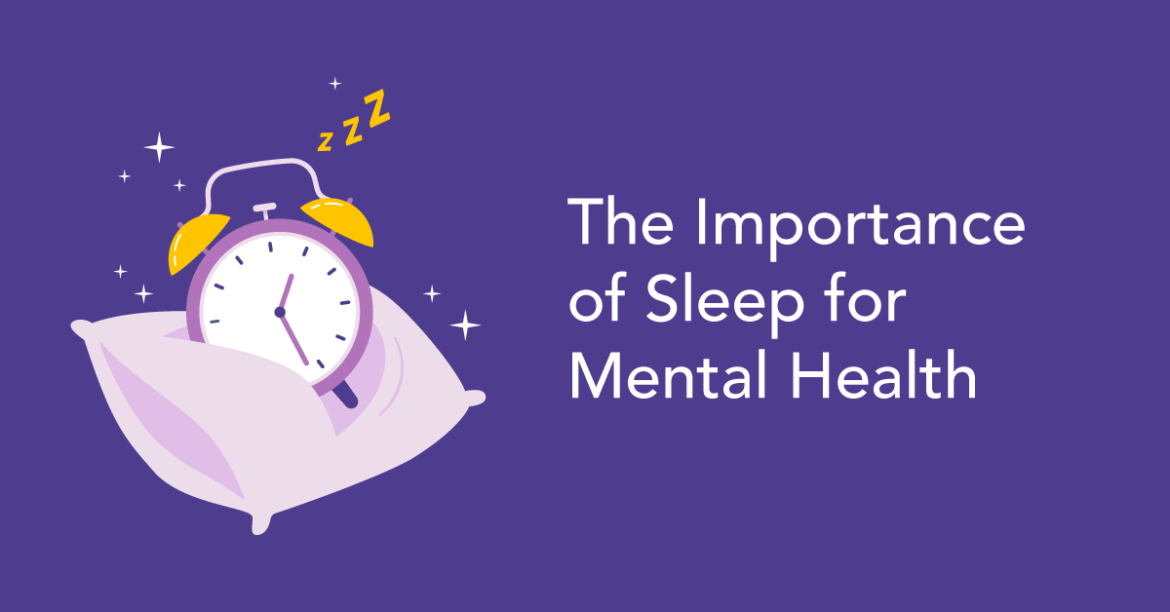Introduction
Sleep is often overlooked when discussing mental health, but it plays a vital role in maintaining emotional balance, focus, and overall well-being. Lack of quality sleep doesn’t just cause tiredness—it can worsen stress, anxiety, and depression. Understanding the link between sleep and mental wellness helps individuals build healthier habits and improve resilience.
How Sleep Impacts Mental Health
1. Emotional Regulation
- Adequate sleep helps stabilize mood and reduces irritability.
- Poor sleep increases emotional sensitivity and stress reactivity.
2. Cognitive Function
- Sleep enhances memory, learning, and concentration.
- Sleep deprivation leads to poor decision-making and decreased productivity.
3. Stress and Anxiety
- Insufficient sleep raises cortisol (stress hormone) levels.
- Sleep disturbances are both a cause and symptom of anxiety disorders.
4. Depression and Mood Disorders
- People with chronic sleep problems are at higher risk of developing depression.
- Treating sleep issues often improves mood and reduces depressive symptoms.
5. Brain Recovery
- During sleep, the brain processes emotions and clears toxins.
- Lack of deep sleep disrupts this restorative process.
Common Sleep Problems Affecting Mental Health
- Insomnia: difficulty falling or staying asleep
- Sleep apnea: interrupted breathing during sleep
- Restless legs syndrome: discomfort leading to disrupted rest
- Irregular sleep cycles due to work or lifestyle habits
Tips for Better Sleep and Mental Wellness
1. Establish a Routine
- Go to bed and wake up at the same time daily.
- Create a relaxing pre-bedtime ritual.
2. Improve Sleep Environment
- Keep the bedroom dark, cool, and quiet.
- Avoid screens at least an hour before bedtime.
3. Manage Stress
- Practice relaxation techniques like meditation or deep breathing.
- Write in a journal to clear the mind before sleep.
4. Limit Stimulants
- Avoid caffeine, nicotine, and alcohol close to bedtime.
- Choose calming teas or warm milk instead.
5. Stay Active
- Regular physical activity improves sleep quality.
- Avoid heavy exercise too close to bedtime.
6. Seek Professional Help
- If sleep problems persist, consult a doctor or sleep specialist.
- Cognitive behavioral therapy for insomnia (CBT-I) is highly effective.
Conclusion
Sleep is a cornerstone of mental health. Without enough rest, emotional regulation, cognitive function, and overall resilience are compromised. Prioritizing healthy sleep habits not only improves mood and energy but also protects against long-term mental health challenges.
FAQs
Q1: How many hours of sleep do adults need for mental wellness?
Most adults need 7–9 hours of quality sleep per night.
Q2: Can poor sleep cause mental illness?
It doesn’t directly cause it, but it significantly increases the risk of depression and anxiety.
Q3: How do I know if my sleep problems need medical attention?
If sleep disturbances persist for weeks and affect daily functioning, seek professional help.
Q4: Is it better to nap during the day if I can’t sleep at night?
Short naps can help, but long or late naps may worsen nighttime sleep.
Q5: Does improving sleep really reduce stress?
Yes, quality sleep lowers cortisol levels and improves emotional resilience.

